The whole world honored the victors and commemorated the victims of World War II more than a month ago, in early May, when the 75th anniversary of Victory Day was marked. Russia, known for its focus on the events of the mid-twentieth century, went its own way - the Victory Day parade was postponed to June 24 due to coronavirus. And although the virus has not receded - about 8,000 new COVID-19 cases are recorded in Russia every day - the Kremlin leadership has not given up a plan to feed the ego of one person.
Russia's motto "We'll pay any price for it" dated 2020 implies, according to Russian media, 14 thousand soldiers and officers, 225 units of military equipment, as well as detachments from 19 world countries on the Red Square and 55 planes and 20 helicopters in the sky over Moscow. At the same time, hardly sentimental Russian leadership advises compatriots to watch this performance on TV.
Ukrinform spoke with Deputy Minister of Foreign Affairs of Ukraine Vasyl Bodnar about the ideological basis of the Russian parade, Putin's interpretation of history, and the current state and prospects of Ukraine-Russia relations
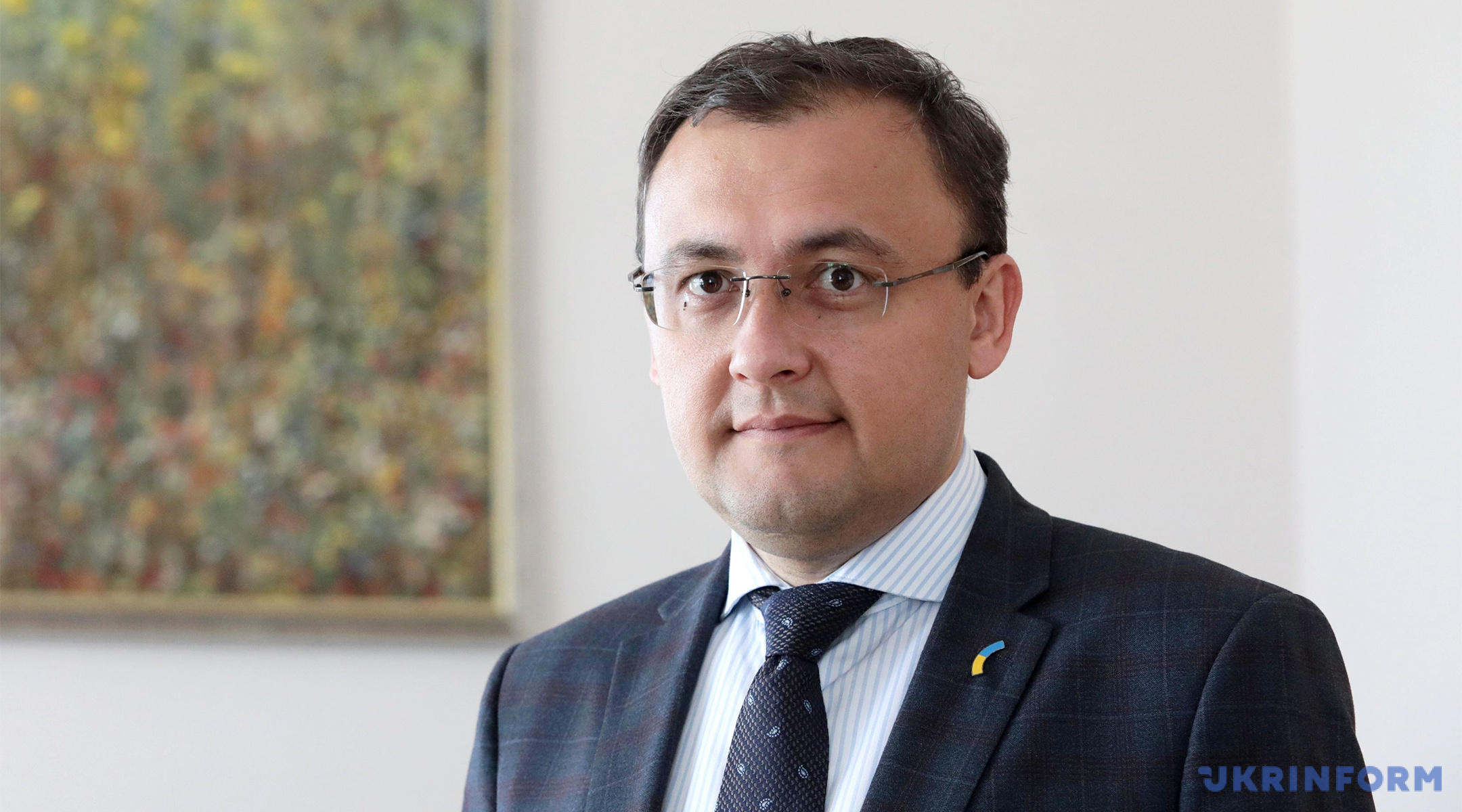
RUSSIA WANTS TO BECOME GLOBAL PLAYER UNDER FLAG OF USSR
- Mr. Bodnar, Russia does not conceal that the so-called Victory Parade in Moscow on June 24 aims to raise the patriotic spirit of Russians before voting for amendments to the Constitution of the Russian Federation. And what foreign policy goals does Russia's leadership pursue by holding this parade amidst the economic and coronavirus crisis?
- Russia incessantly loses its role and place in global politics, and since 2014, after the start of the aggression against Ukraine, it has fallen into international isolation. However, geopolitical ambitions have remained the same as they were in the USSR. That is why, Russia seeks to strengthen its positions in different ways, including by using the issues of history.
The Kremlin envisions that the parade should clearly demonstrate that Russia continues to be one of the "great powers" that decide the fate of the world. Putin clearly follows this line in his article dedicated to his vision of the events of World War II.
But let's get back to the parade. By inviting world leaders to it, the Kremlin leadership intended to demonstrate that Russia occupies the same global position as the former Soviet Union did.
This is evidenced by the choice of a new date for the parade - exactly 75 years after Stalin's "parade of winners", i.e. a direct parallel with the former Soviet dictator who participated in the division of the world into spheres of influence.
However, the list of world leaders, who agreed to come to the parade in Moscow, shows that this plan failed. Even the leaders of some CIS countries refused.
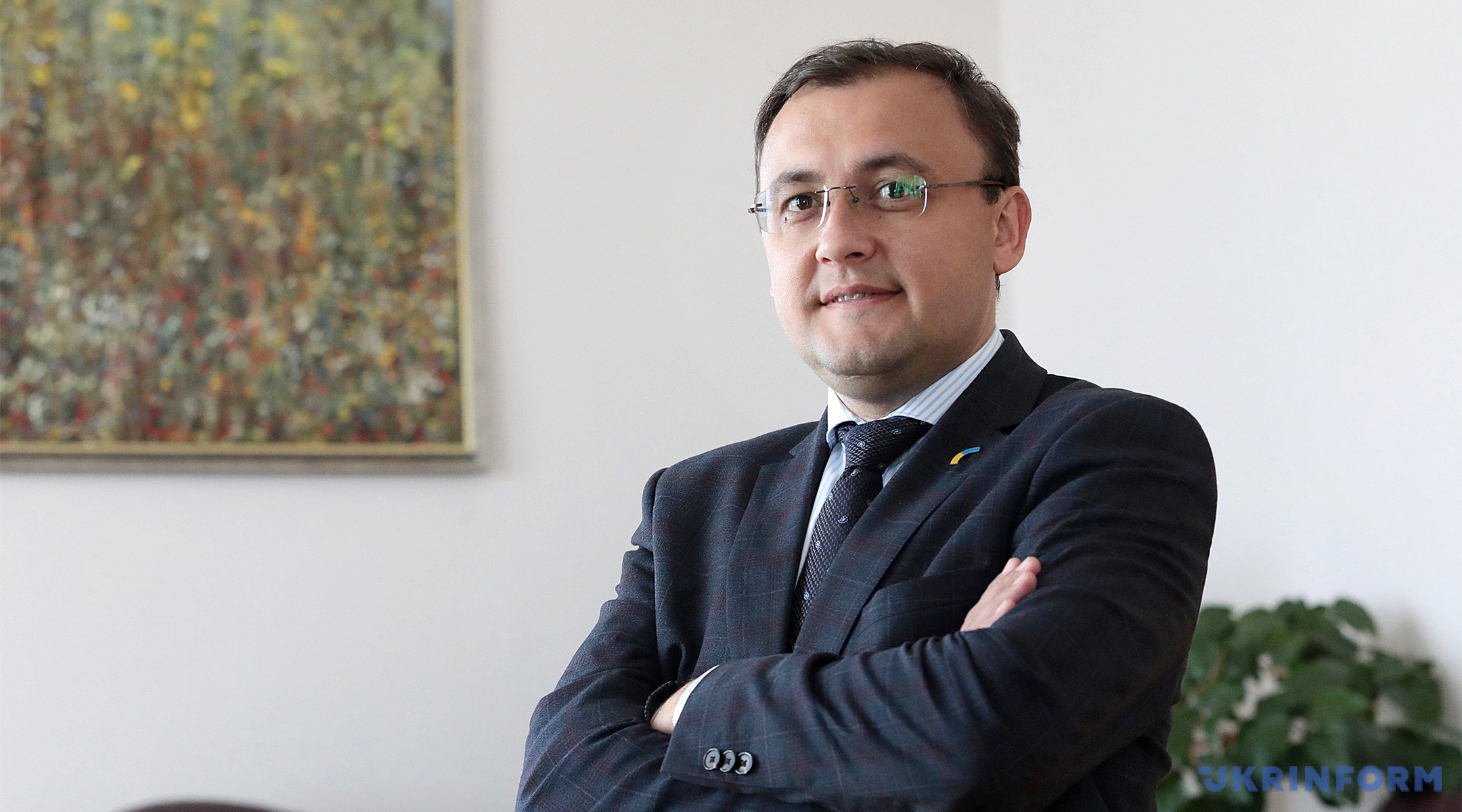
- Can it even be successful in the modern world with such an ideological basis?
- The victory in World War II was a common achievement of all members of the anti-Hitler coalition. A reflection of this was the joint Putin-Trump declaration on the Elbe Day. But for some reason, other nations that suffered and fought against Nazism were forgotten.
The contribution of Ukraine and Ukrainians to the victory was great, and our victims were terrible. But the Kremlin conceals this and appropriates all the laurels of the winner and liberator.
The Russian leadership wants to become the same global player as the Soviet Union was during World War II, flying the flag of the USSR. This is the main manipulative narrative. But it is as far from reality as the ideology of Putin's parade, which shields itself with Victory to achieve mercantile goals.
- According to Russian media, the presidents of several CIS countries, president of Serbia, and Hungarian Foreign Minister Péter Szijjártó confirmed they would be present at the Moscow parade. Do such political gestures towards Russia affect our bilateral relations with these countries?
- Of course, we are not happy with them. But relations with the Russian Federation are a matter for each state. We do not influence their decision to participate and do not make bilateral relations conditional on it.
But, if possible, we warn foreign colleagues that the leaders or representatives of these countries can be used by Russian propaganda for its foreign policy purposes.
- In your opinion, why does the foreign minister of Hungary, which is a member of the EU and NATO, go to the neo-Stalinist parade?
- If we analyze Hungary's policy in relations with Russia, the dialogue between these countries has not stopped. Of course, it is the right of official Budapest to decide on a certain level of contacts with certain countries. But we count on a balanced approach.
Moreover, we hope that Péter Szijjártó will come to Ukraine and we will see him in Kyiv next week [the interview was recorded on June 19], so the balance will be maintained.
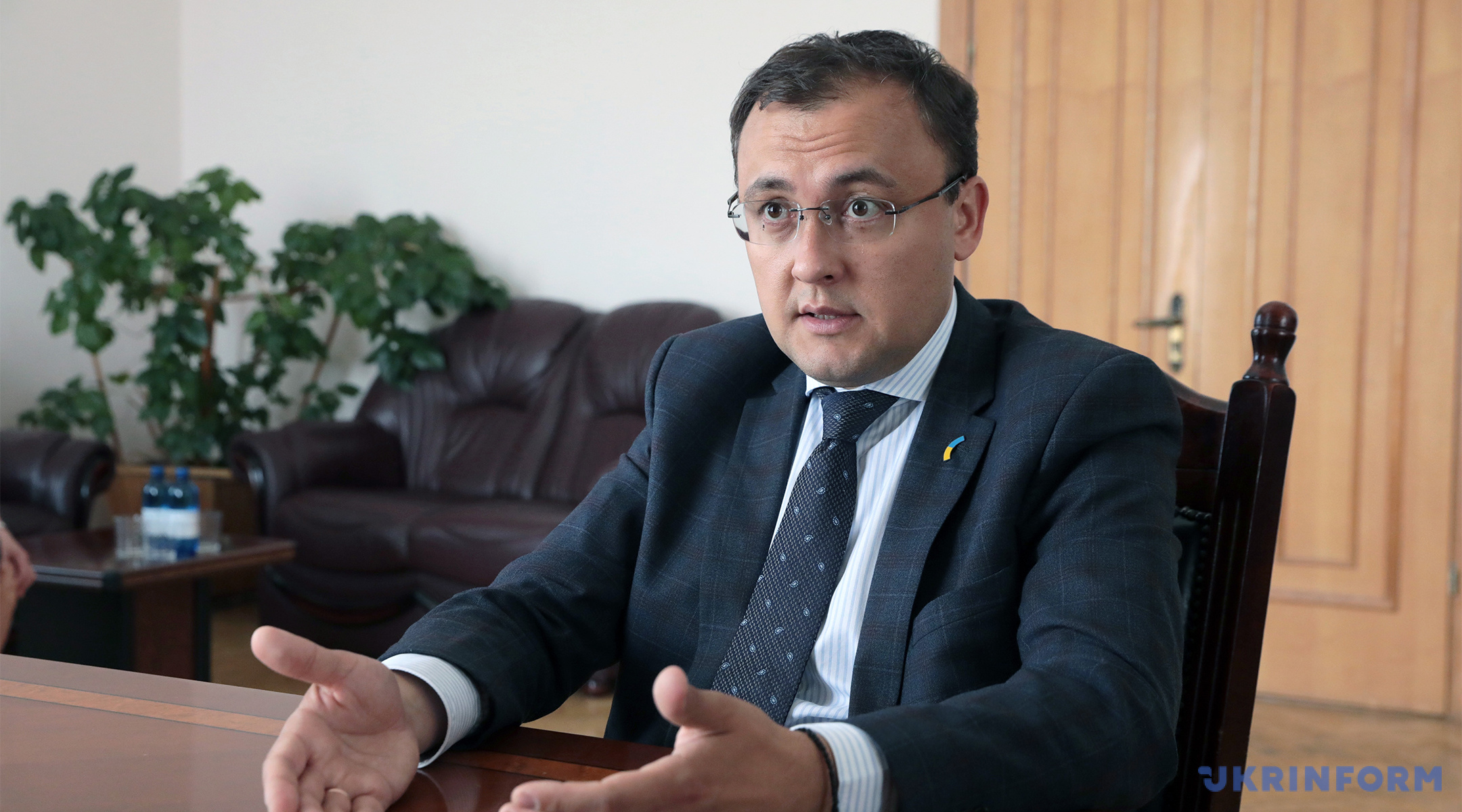
RUSSIA ALREADY IMPLEMENTS "WE CAN REPEAT IT" SLOGAN TOWARDS NEIGHBORING COUNTRIES
- Putin's article on the events of World War II has already provoked a stormy reaction in many countries. What was the intention? Why did the Russian president write it? What new ideas did he express there?
- This is one of the elements of the Russian manipulation chain: the Victory Parade with invitation of world leaders, the repetition of classic Soviet propaganda clichés pretending to be new ideas of the Russian president, and then formation of a narrative that it is Russia, not all nations of the anti-Hitler coalition, that liberated Europe from Nazism. Russia wants to give prominence to its role both in the war and in the post-war settlement, in maintaining stability and security in Europe. Russian wants to emphasize that allegedly no order is possible without it. However, Russia is actually an aggressor today, a source of international insecurity and it seeks to further divide the world into spheres of influence.
I have repeatedly said in the media that Russia tries to use any methods, including history, to get out of the sanctions, because it really feels their impact.
The Kremlin seeks to fully return to world politics as the Russian Federation has been quite seriously isolated from participation in global processes after the start of the aggression against Ukraine. Now a certain shift is looming, some discussions have begun, but what the Russians want is not happening.
Unfortunately, what Ukraine wants is not happening either. Ukraine wants the world to work together to force the Kremlin to comply with international law and restore the territorial integrity of our state. But we will do everything possible to ensure that events develop according to the Ukrainian scenario, not the Russian one!
- The Ministries of Foreign Affairs of Estonia, Latvia, and Lithuania summoned the ambassadors of Russia because of the proposal of the State Duma to cancel the decision of the Congress of People's Deputies of the USSR to condemn the Molotov-Ribbentrop Pact made thirty years ago. Will Ukraine also declare its position on this issue?
- Currently, it is unknown how this idea will be implemented in the State Duma. If it becomes a fait accompli, I think there will be a very stormy reaction, not only from the Foreign Ministry, but from the society, the Ukrainian Institute of National Remembrance, and our politicians.
It seems strange, maybe even tragicomic, to overturn the condemnation of the Molotov-Ribbentrop Pact which actually gave the green light to World War II.
I don't know what Russian lawmakers are guided by, but apparently they live in a parallel reality that we don't understand.
Russia has already changed the end date of World War II; they stubbornly try to hold the parade despite the pandemic peak, although May 9 is long gone; they reiterate an old Soviet statement that the Soviet Union was allegedly defending itself, not attacking, although the opposite had been impartially proven. Hitler's Germany and Stalin's USSR conspired to start the war with a joint attack on Poland and then to divide Europe.
Russians say that the West revises history. But they themselves had previously published all the evidence of Soviet Union’s aggressive policy! The agreement between Stalin and Hitler on the division of Poland and spheres of influence is confirmed by archival materials. It was such a real politics based on the imperial ambitions of each of those tyrants. And now Putin's Russia whitewashes these facts and blames all the rest for the outbreak of World War II, but not Stalin!
- Is the revision of history by Russians also aimed at the domestic consumer?
- No, they export it abroad. Kremlin propagandists try to promote their narrative by focusing on a certain aspect beneficial for Russia in different countries.
For example, in the European arena, they show the role that Russia played in the fight against Nazi Germany. However, all the allies fought against Hitler. The USSR also played an important role, and Ukraine and other nations were a part of it. But Russia does not mention this now.
- Can this narrative work abroad?
- Most politicians know the history of their countries, the history of that terrible war and are aware of today's realities. I should recall that the Declaration of the European Parliament of 23 September 2008 condemned the Hitler-Stalin Pact as the one that divided Europe into two spheres of interest through secret additional protocols and as the one that led to mass deportations, killings and enslavement which happened due to the acts of aggression of Stalinism and Nazism and fall into the category of war crimes and crimes against humanity. In fact, the signing of the pact resulted in war, occupation, massacres, the Holocaust, and many other terrible tragedies.
Putin is still angry about this fact as it is evident from his article, where he calls it "slander and meanness."
He also accuses Ukrainians of collaborationism but says nothing about the participation of Russians in the armed forces of the Third Reich. However, fighting of more than 400,000 ethnic Russians on the side of Nazi Germany is a historical fact.
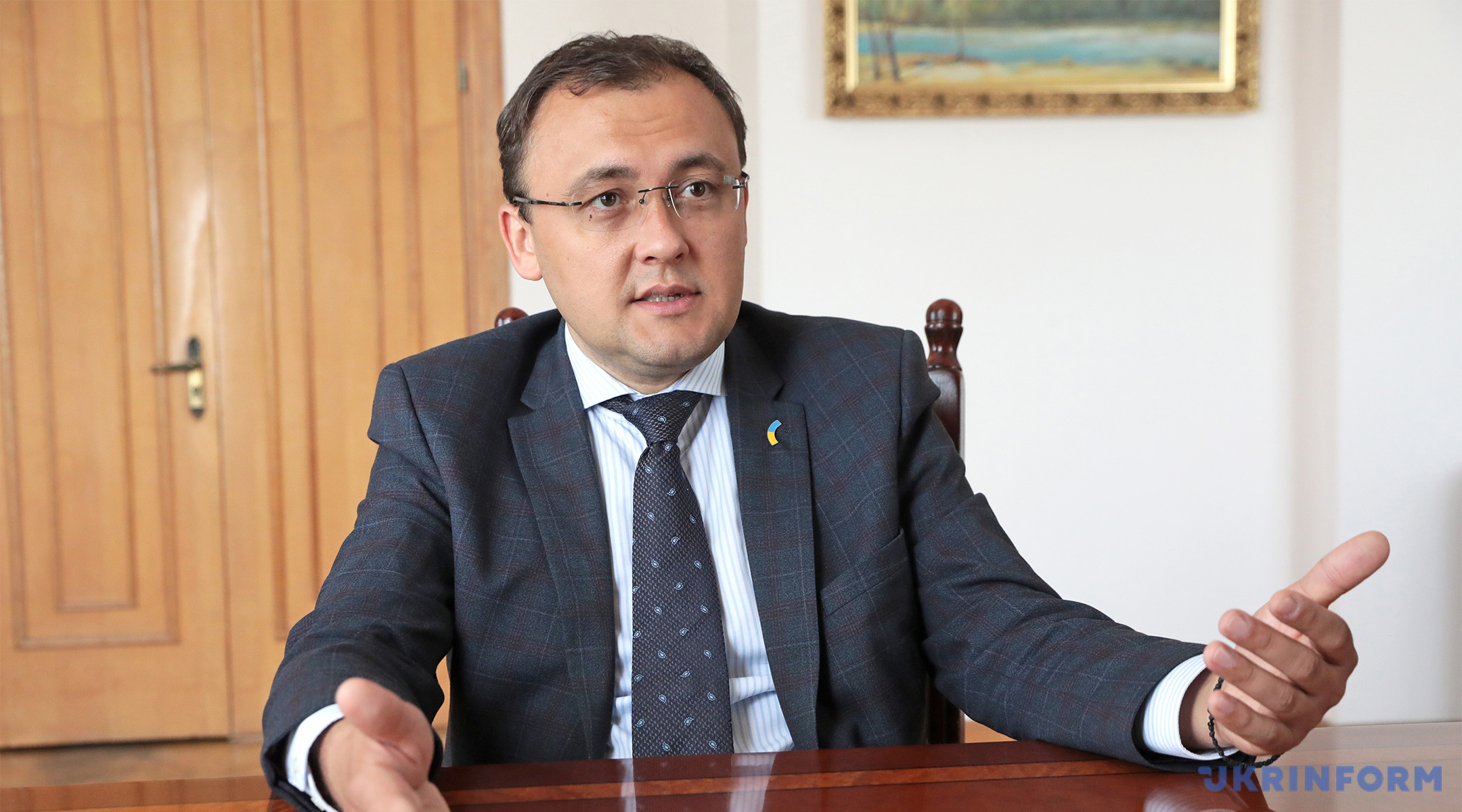
- Russia is using hybrid methods everywhere. Will it be able to impose its historical narrative on European society, which will then influence the politicians of its countries?
- If it was not for the current aggressive policy of the Kremlin, the Russian exaggerated “victorious” hysteria would have flourished in Ukraine as well. Before the beginning of the Russia-Ukraine war, few people spoke about the role of the USSR at the beginning of World War II, we were dominated by the Soviet vision of the main victor over Nazi Germany.
But as Russia began to appropriate the victory over Nazism and neglect the role of other nations and peoples since the 2000s, the public opinion in Ukraine and around the world has become more critical about Russia's conquest of common history.
Again, the social narrative in Ukraine and in other countries is based on the thesis "Never again", while in Russia it is based on the opposite idea - "We can repeat it!"
- Does the world perceive this Russian slogan "We can repeat it" as a threat?
- In fact, Russia already implements this slogan as its aggressive actions in some way repeat the aggression committed by the Soviet Union against its neighbors.
The Kremlin openly demonstrates that it continues the USSR's policy toward other peoples: aggression, invasion, and subjugation.
But this approach also has an internal dimension: it incites Russian society to be ready to make unnecessary sacrifices again as it happens now in Ukraine's Donbas, Syria, and Libya, where Russian soldiers die for sake of ambitions of Russian politicians.
REACTION TO UKRAINE'S PARTICIPATION IN NATO ENHANCED OPPORTUNITY PARTNERSHIP SHOWS THAT RUSSIA HAS LOST AGAIN
- The Ministry of Foreign Affairs already expressed its stance on the illegality of voting of residents of occupied Crimea and occupied Donbas with Russian passports in a constitutional referendum in Russia. Will Ukraine raise the issue of imposing additional sanctions on Russia in talks with the international community?
- Yes, it definitely will as it is a direct violation of Ukraine’s sovereignty and an attempt to impose its will on the population of the occupied territories.
Of course, we will also address the international partners and take measures at the national level to influence the organizers of this vote.
- But, for example, the EU imposed sanctions against five people over the organization of presidential elections in the occupied Crimea. Could a July 1 vote be the basis for more tangible sanctions?
- Sanctions were imposed against persons who actually took part in the illegal actions of the occupation authorities, that is, there were certain grounds for this. Targeted sanctions work better.
For many people in Russia, sanctions create significant discomfort and problems. For example, Crimeans have a big problem when a visa cannot be put in a Russian passport issued in the occupied Crimea. Indeed, Crimea used to be a territory from which they could travel freely and the whole world was open, now it is actually a closed territory of a large military base.
Of course, the Russian authorities are responsible for illegal voting in the upcoming referendum.
- The Kremlin, commenting on Ukraine’s joining NATO's Enhanced Opportunity Partnership, said that they are “paying close attention” to bringing NATO military infrastructure closer to the borders of the Russian Federation and will take the necessary measures to ensure their own security. Do such statements contain additional threats to Ukraine?
- Russia has already occupied Crimea, part of Donbas, deployed numerous military units there - both its own and local, builds military bases along the Ukrainian border, and at the same time it declares that NATO allegedly can threaten them from our territory. This is sheer manipulation!
In fact, such rhetoric of Russian politicians and the media shows that Russia has once again lost, as it did when it declared that the EU would not sign the Association Agreement with Ukraine, or the EU would not give us visa-free travel, etc. Now they are also sending signals to the public that this does not mean anything, that it does not matter, that this does not bring Ukraine closer to NATO and the like.
In this situation, we should do our own thing, that is, strengthen our defense capabilities and prepare for joining the North Atlantic Alliance.
- Ukraine has terminated or dissolved a number of agreements with Russia. Are you planning any other steps in this direction? Does the running contractual framework correspond to the current state of relations between Ukraine and Russia?
- Before the war, we had 453 signed bilateral agreements. Now about 300 documents remain in force, but a further revision of what we can refuse is ongoing.
We do not take radical and emotional steps that can harm our citizens. We did not break off diplomatic relations with Russia; we did not stop our diplomatic presence in Russia; respectively, before the quarantine, Ukrainian citizens moved freely there, and they had the opportunity to receive protection on the territory of the Russian Federation.
If we cancel all agreements at once, we will find ourselves in a lose-lose situation, when there is no mechanism to protect the interests of Ukrainian citizens on the territory of the Russian Federation. We will not allow this.
Remember the situation when Georgia broke off diplomatic relations with Russia. To represent interests, it is necessary to seek an intermediary who will protect the interests of its citizens in Russia.
I don’t know how many Georgians are on the territory of the Russian Federation today, but we have millions of people there, both Ukrainian citizens and ethnic Ukrainians living in Russia.
Therefore, as of today, we have functional contracts – partly the contractual framework within the CIS and partly bilateral. Together with ministries and departments, we are gradually reviewing them in order to optimize and leave the minimum necessary number of documents that would allow us to maintain an appropriate level of protection of the rights and interests of citizens of Ukraine.
We should take into account the need to comply with all withdrawal or termination procedures so that there is no double interpretation of the force of certain documents.
For example, Russia unilaterally denounced agreements on the deployment of Russia’s Black Sea Fleet in Crimea. We believe that they should be effective, since legal procedures were not followed, and the Russians violated international law by resorting to an attempt to occupy the Ukrainian territory.
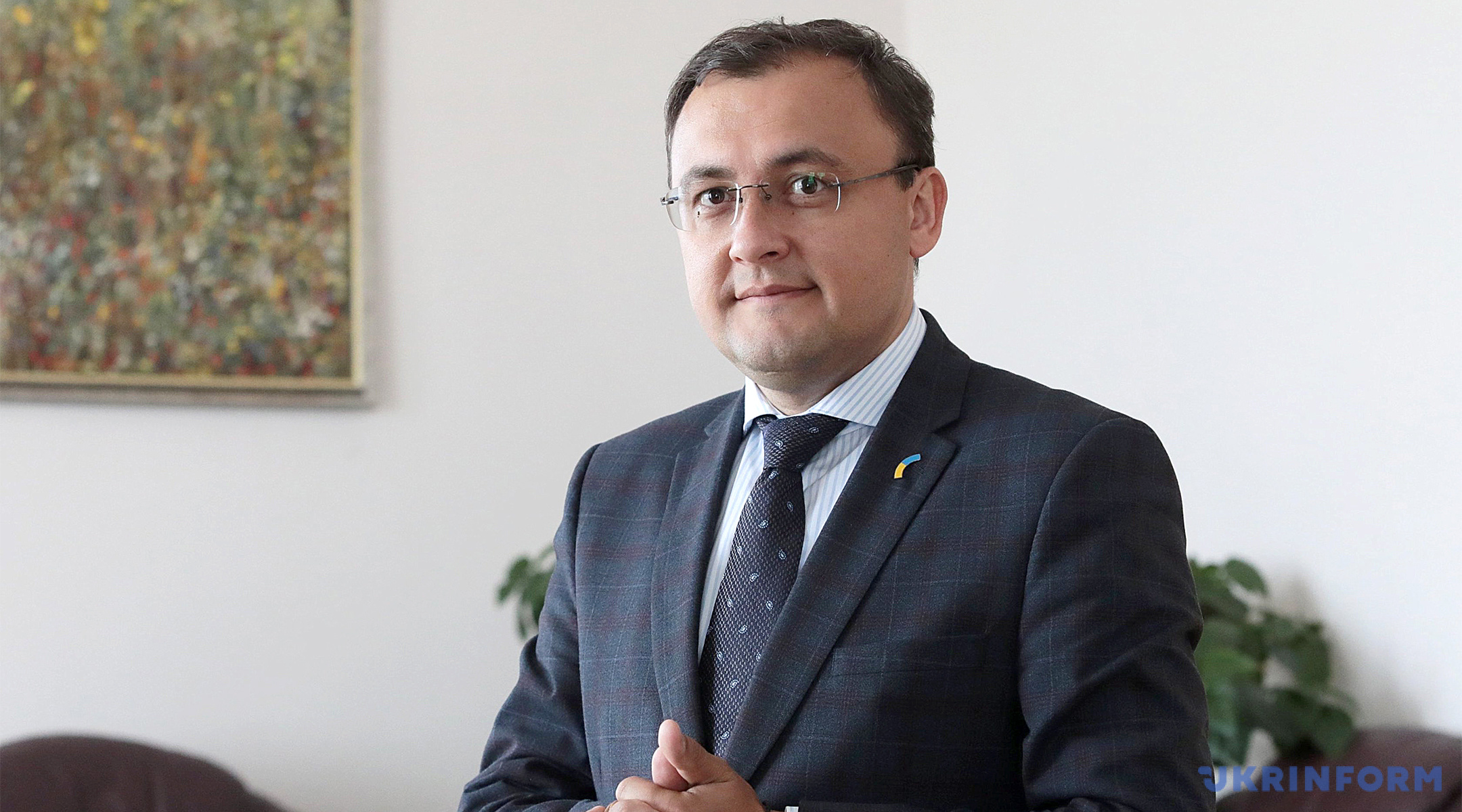
- That is, Russia would have paid us for the deployment of the Black Sea Fleet in Crimea?
- Yes, about $100 million a year, but since 2014 no payments have been made.
However, Russia will pay long not only for the agreements, but also for what it has done by unleashing aggression against Ukraine and occupying part of our territory. After all, despite international lawsuits of Ukraine against Russia, there are lawsuits by state-run and private companies.
TOLERANCE OF UKRAINIANS TOWARDS RUSSIANS MAY BE BOTH OUR WEAKNESS AND STRENGTH
- According to a joint survey conducted by Kyiv International Institute of Sociology (KIIS) and the Levada Center in April, despite six years of Russian aggression, 54 percent of Ukrainians polled are well disposed towards Russia. The number of Russians who are good with Ukrainians decreased from 56 to 41 percent. Should we condemn such tolerance of compatriots towards the aggressor country?
- First of all, we need to learn in detail about the methodology according to which these surveys were conducted, what questions were asked, maybe they were in some context.
Secondly, two-thirds of Ukrainian citizens consider Russia an aggressor.
And, thirdly, the figure you mentioned shows how tolerant Ukrainians are even to their enemies. This is our traditional mental trait, which can be both our weakness and strength, depending on what kind of policy we profess. If we are going to fight for centuries, then this is one story, but if we are still going to end the war, this is another story.
Of course, peculiarities of the mentality of Ukrainians should be taken into account, but, in my opinion, there is nothing to blame them for - this is their choice.
But, again, I would go back to where I started – with the survey methodology. If, for example, the first question is whether you consider Russia is an aggressor, the second – how do you feel about Russians, and the third one – what do you think about Putin, then the mood of Ukrainian society will be clearly understood.
And if there was a general question - how do you feel about, for example, citizens of the EU, Russia, the USA, then this is a completely different methodology of questions.
- The level of diplomatic representation between Ukraine and Russia has lowered, and the number of Ukrainian diplomats in Russia has been significantly reduced. Are there enough of them to complete the tasks?
- Yes, there are, since there is no relationship or cooperation. Negotiations on the settlement of Russian-Ukrainian conflict continue in Minsk, so the embassy in Russia is mainly engaged in protecting the rights and interests of Ukrainian citizens and monitoring the situation in Russia.
- Has the issue of introducing a visa regime with the Russian Federation been removed from the agenda? Or you can return to this idea.
- We need to constantly analyze the consequences. If, for example, the Russian Federation is recognized as a source of illegal migrants, then visas are justified.
But if we force our citizens to stand in a queue for visiting the Russian consulate, will we do them a good service?
At the Ukrainian border, border guards collect biometric data of Russian citizens, that is, de facto these are the same “biometric visas”.
Of course, we will gradually move away from the liberal mechanisms of border crossing, as it used to be, and strengthen control, since we do not see any steps on the part of the Russian Federation that would indicate an intention to resolve the conflict in Donbas and return the occupied Crimea.
- Is the exact number of our fellow citizens living in Russia known? In their number stable or is there some kind of dynamics?
- Some 25,000 citizens of Ukraine are registered in all consular offices in the Russian Federation. In real life, it seems to me that there are more than a million of them in Russia - someone works, someone has a family, maybe some kind of business.
Formally, it is impossible to track the dynamics of the stay of our citizens, because no one reports that he is going to work there. People come to Ukrainian consulates when they have problems.
Of course, our consuls in Russia have enough work - they also help our citizens who have logistical problems and visit our political prisoners.
When traveling to Russia, Ukrainian citizens risk getting into unpleasant and even critical situations. Russia returned to the times of the USSR, when its special services did not shun methods such as using citizens of Ukraine to create fake news. Going to jail is absolutely real.
We have repeatedly warned our citizens about their personal responsibility and the risks they face when visiting the Russian Federation.
- Is the resumption of transport service with the Russian Federation, which has been suspended due to the coronavirus pandemic, under discussion?
- Despite the fact that the government decided to gradually open the borders of Ukraine, the issue of resuming services with Russia – we are talking about rail transport services, since air services have been suspended since 2014 – is not on the agenda yet
Russia today is at the peak of the incidence rate and ranks third in the world in the number of patients. It is dangerous to fully resume transport services and jeopardize the epidemiological situation in Ukraine, as the number of COVID-19 cases is growing in our country as well.
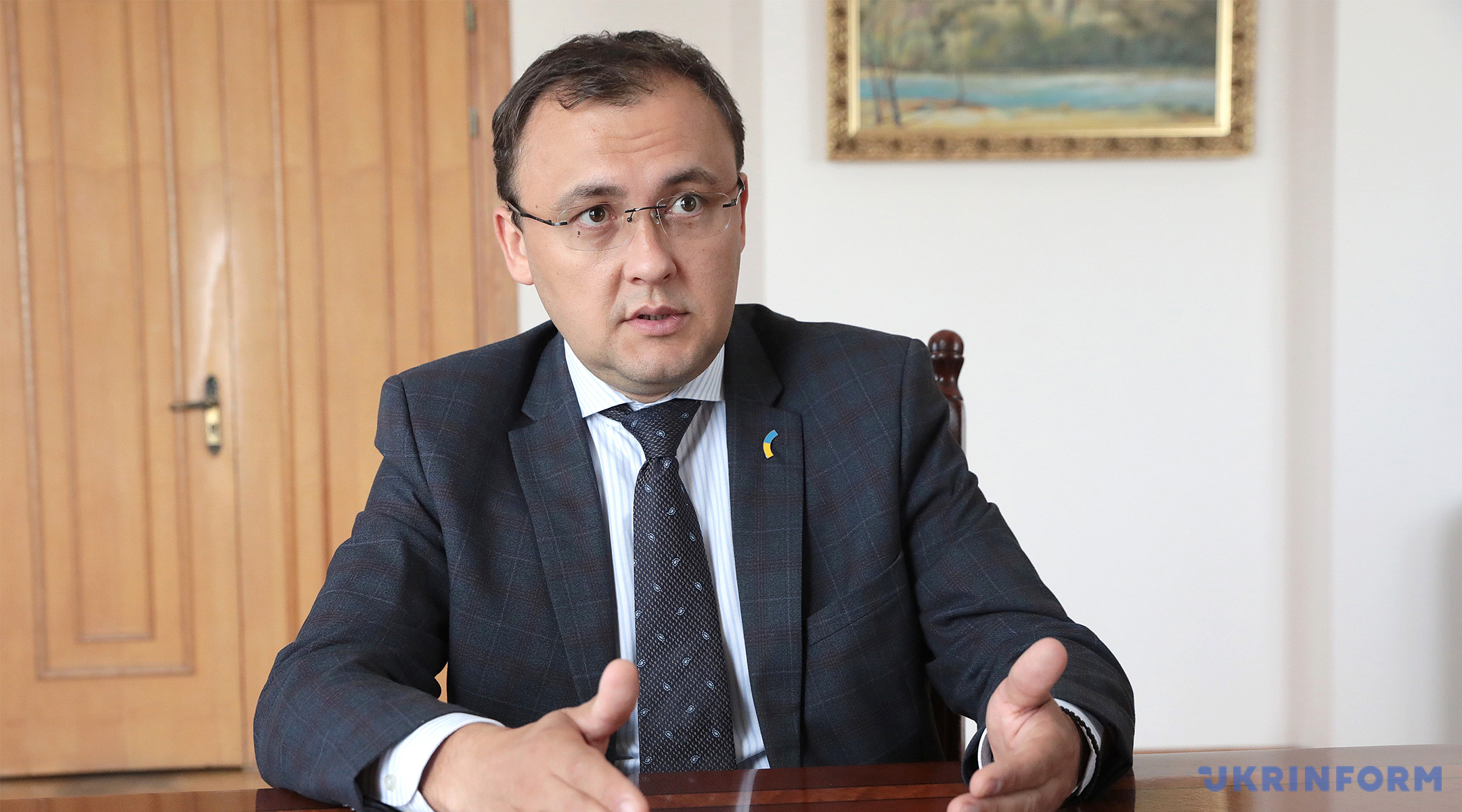
- We have talked about what happened and is happening in relations with Russia, and now, finally, I want to ask you what will happen. Analysts believe that Putin, through a constitutional referendum, wants to extend his stay in power until 2036. Is it possible to establish relations between the Russian Federation and Ukraine during this time?
- All the transformations in Russia and real actions near the Ukrainian border show that the Kremlin is preparing to continue aggressive actions. At a minimum, this refers to a demonstration of power, and, possibly, the continuation of military aggression.
Our answer is “keep calm and clean the machine gun”. We are not buying into the supposedly conciliatory rhetoric of Russia; we are strengthening our defense capabilities and psychological readiness for defensive positions. Otherwise, Russia's attempts to destroy the unity of society by using hybrid methods will be successful.
No one but us will protect us! This, it seems to me, is the main narrative for Ukraine in order to survive and develop as an independent state. The ideology of self-defense.
For example, the adoption of the Law “On Territorial Defense” is on the agenda. I followed its discussion in the relevant committee - there is an understanding that this must be done.
Nadiia Yurchenko, Kyiv
Photo credit: Hennadiy Minchenko
Photo credit: Hennadiy Minchenko
